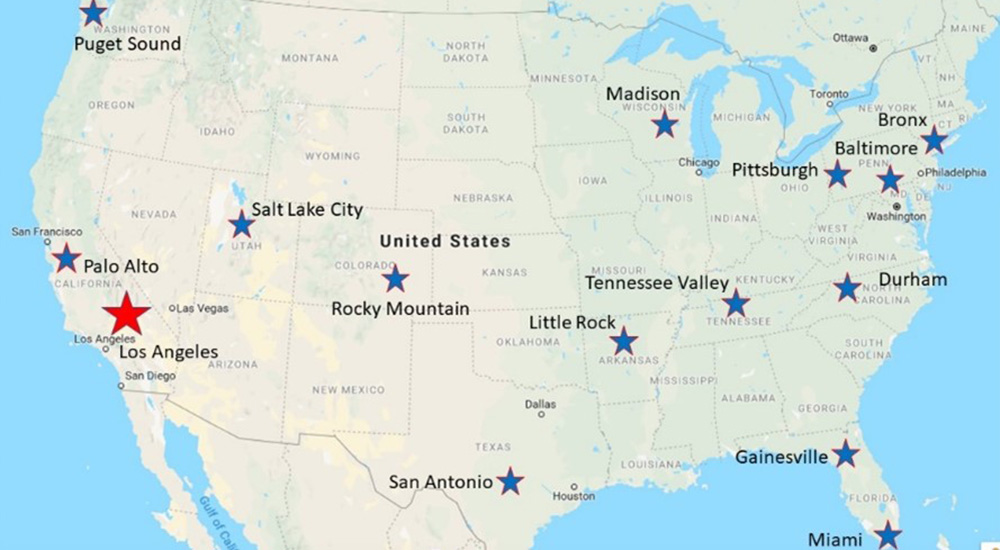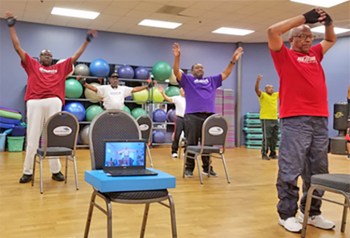Every night before his family went to sleep, a Veteran living in the heart of the Rocky Mountains compulsively secured the perimeter of his home. But his actions had nothing to do with neighborhood safety. They were caused by flashbacks to his service in Vietnam decades earlier.
As his family watched dementia and posttraumatic stress disorder (PTSD) rob them of the man they knew and loved, they observed an even more painful side effect: his loss of self-value.
As the Veteran’s mental and physical health deteriorated, his family grew increasingly desperate to find the care he needed. In fall 2021, they saw their first glimmer of hope.
The Veteran’s family was referred to the Geriatric Research, Education, and Clinical Centers (GRECC) Connect program for support. The Veteran’s care team—including a geriatrician, psychiatrist and program coordinator—connected with him and his family via phone and VA Video Connect. They informed them about his conditions, treatment options and potential resources.
In the words of the Veteran’s wife, GRECC Connect is “a miracle.” She credits her husband’s team with providing more than just health care. They served as a steady, calming support system as she learned how to help him navigate living with PTSD and help herself as a caregiver.
The bigger picture
This Veteran and his family aren’t alone. More than 2.5 million of America’s rural Veterans are over the age of 65 and face physical and mental health challenges of their own.
Despite the growing population of older rural Veterans, many of their communities are unequipped to provide specialty care such as geriatrics. Studies show that rural areas have roughly one specialist for every 3,000 residents, which can be especially dangerous for rural Veterans who tend to be older and sicker than their urban counterparts.
To help combat the specialty care shortage, VA’s Office of Rural Health (ORH) supports programs that bring geriatric care directly to Veterans in rural communities.
These programs—such as GRECC Connect, Geriatric Scholars, and Gerofit—were developed with the unique needs and access challenges of older rural Veterans in mind.
Geriatric programs at a glance
The GRECC Connect project allows Veterans to receive real-time virtual care from geriatricians, eliminating the need to travel long distances for specialty care.
“What we see is an opportunity to help a Veteran and their loved ones,” says a GRECC Connect provider. “Not only with physical need but to stand with them in times of sorrow, confusion, pain and uncertainty about the future.”
Since 2014, the GRECC Connect project has:
- Served more than 10,000 Veterans
- Supported more than 4,700 providers and staff
- Saved Veterans nearly 890,000 miles of travel
The Geriatric Scholars Program trains local VA clinicians to provide care to older rural Veterans, helping to overcome the critical provider shortage in rural communities. Active Geriatric Scholars sites are pictured in the map above.
Geriatric Scholars Program increases aging rural Veterans’ access to quality care by integrating geriatrics into existing services at local VA community based outpatient clinics (CBOCs).
Served over 680,000 Veterans
Since 2008, the Geriatric Scholars program has trained more than 1,000 VA clinicians. Those providers have collectively served more than 680,000 Veterans.
Gerofit uses telehealth to connect rural Veterans over the age of 65 with exercise programming to improve their physical and mental health, and overall well-being.
Veterans receive guidance from trained exercise staff, including physiologists, nurses and physical therapists. “It’s a benefit not only to my physical health but to my mental health as well. I attribute a lot of that to my continual workouts here at Gerofit,” one Veteran said.
Gerofit is now offered at 30 VA Health Care Systems. Click here to find a location near you.
Topics in this story
Link Disclaimer
This page includes links to other websites outside our control and jurisdiction. VA is not responsible for the privacy practices or the content of non-VA Web sites. We encourage you to review the privacy policy or terms and conditions of those sites to fully understand what information is collected and how it is used.
More Stories
Study underscores important role COVID vaccination can have in protecting Veterans from infection and reducing long-term health consequences
Columbia VA’s robotic surgery teams completed their 800th robotic surgery and are on schedule to hit 1,000 by the end of the year.
In a decentralized clinical trial, Veterans can participate from their own homes or local VA instead of having to travel to a research site.







